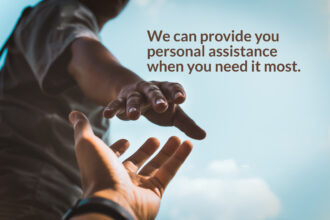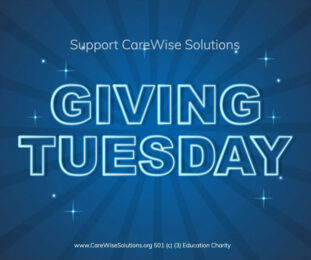Should you get a fourth COVID-19 shot? Here’s what UCSF’s Dr. Bob Wachter thinks.

By Danielle Echeverria Updated: Monday, January 31, 2022
As some countries begin to offer a second booster shot — a fourth dose — of the Pfizer or Moderna COVID-19 vaccines, should you consider getting one?
Given the data that exists right now, Dr. Bob Wachter, chair of medicine at UCSF, says he would skip it.
The doctor took to Twitter to explain that the situation is complicated, and as with most things concerning the virus, rapidly evolving.
As it stands now, Wachter said, early data from Israel, one of the few countries already doling out fourth doses, shows that second booster does provide some additional protection against severe disease and infection. But people with just one booster are so highly protected already that the difference isn’t significant.
But he’s willing to change his mind if that difference changes over time.
In the U.S. severely immunocompromised people, such as those receiving active cancer treatment or who have had an organ transplant, are eligible for a fourth dose of the COVID-19 vaccine, according to the U.S. Centers for Disease Control and Prevention. For this group, a fourth dose is the first “booster” dose: Three doses are considered a complete vaccine series for them.
As Wachter notes, preliminary findings in Israel — the first country to offer a fourth shot to anyone over 60 — boosted antibodies but didn’t do much to further prevent infection rates or serious disease with the omicron variant, the Times of Israel reported.
That’s largely because a booster shot alone — or a third shot — already significantly reduced chances of dying from COVID-19. For a 65-year-old man with no additional risk factors, it’s about one in 1,500, Wachter said, or 0.07%.
However, more recent data out of Israel touted better results — saying a fourth shot offered a threefold reduction in serious illness and twofold reduction in infection compared to people who had just gotten one booster dose, the Times of Israel reported, though the data is still preliminary.
But Wachter explained that that “threefold reduction” may not be as significant as it sounds.
First, Wachter notes that early evidence out of the United Kingdom shows that antibodies from booster shots begin to wane by between 15% and 25% around ten weeks after the shot, decreasing the shot’s effectiveness.
But scientists still do not know how much waning antibodies increase risk of hospitalization or death, Wachter said.
To determine if it’s worth getting the fourth shot, Wachter uses the Number Needed to Treat (NNT), a measurement commonly used in medicine to help doctors and patients decide if a treatment is worth the potential risks and costs.
The larger the NNT, the fewer people are helped by the treatment.
For a second booster shot, the NNT is 1,163, Wachter calculated. In contrast, most medical treatments ideally have an NNT of 5 to 15, Wachter said. Importantly, the NNT changes when other risk factors are involved, so it would likely be lower — or more effective — for an 80-year-old diabetic, but much higher for a healthy 30-year-old, he explained.
But unlike treatments for other diseases that can be expensive and have severe side effects, COVID-19 vaccines are safe and cheap, Wachter noted. They also help beyond just the outcome preventing death, which Wachter used to calculate the NNT — they prevent hospitalization and may even decrease risk of long COVID.
Additionally, because it’s COVID, “it’s not just about the individual,” Wachter wrote — so if a fourth shot decreases risk of infection, that means the spread of the virus is lowered for the entire community.
Wachter also noted that people may think they should wait for omicron-specific vaccines that Pfizer and Moderna are currently developing — but he’s “skeptical” that these variant-specific boosters will make much difference, he wrote, given how effective current vaccines and boosters already are in preventing serious illness and death even with omicron.
“If I was convinced that a 4th shot was beneficial now, I wouldn’t delay getting it to wait for a potentially ‘better’ vaccine,” he wrote.
In an interview this week with ABC News,, Dr. Anthony Fauci said he doesn’t yet know whether a fourth dose will be needed as data on the durability of the first booster dose is still coming in — and he’s hopeful that the third dose will provide longer-lasting protection against severe disease than the original vaccine series did.
“That’s where we would like to be … where you don’t have to get more and more, always, every six months with a booster,” he said. “We may need to boost again. That’s entirely conceivable, but before we make that decision about yet again another boost, we want to determine clearly what the durability of protection is of that regular boost, that third shot that we’re talking about.”
Another concern is the persistent lack of vaccination access in much of the world. As of December, only half of the World Health Organization’s member states had reached their goal of vaccinating 40% of the population, because of lack of supply. Epidemiologists have argued that leaving much of the world unvaccinated while the vaccinated receive boosters means that variants won’t stop developing.
“Blanket booster programs are likely to prolong the pandemic, rather than ending it, by diverting supply to countries that already have high levels of vaccination coverage, giving the virus more opportunity to spread and mutate,” Dr. Tedros Adhanom Ghebreyesus, the director-general of WHO said in a December media briefing.
Wachter noted this concern but said that if a fourth shot was “unambiguously useful in preventing deaths & infections, we have other ways to contribute to global vaccine equity without foregoing beneficial treatment.”
The data from Israel does not consider people who are vaccinated, boosted and got a mild case of omicron, Wachter said — a growing group of people who likely have some “hybrid immunity” that would make a fourth shot less beneficial.
With all that in mind, Wachter said he’ll be holding off on the fourth shot for now — saying the NNT is too high and the evidence too weak to require or recommend a fourth shot at this time. However, that conclusion is subject to change as more data rolls in, he said.
“But if additional data confirm the Israeli findings, then I’d probably take it, because the risks are near-zero and the benefit may grow over time,” he said, either because of further waning immunity from the first booster or because the spread an even more infectious variant “may increase the value of having the maximum possible immunity.”





